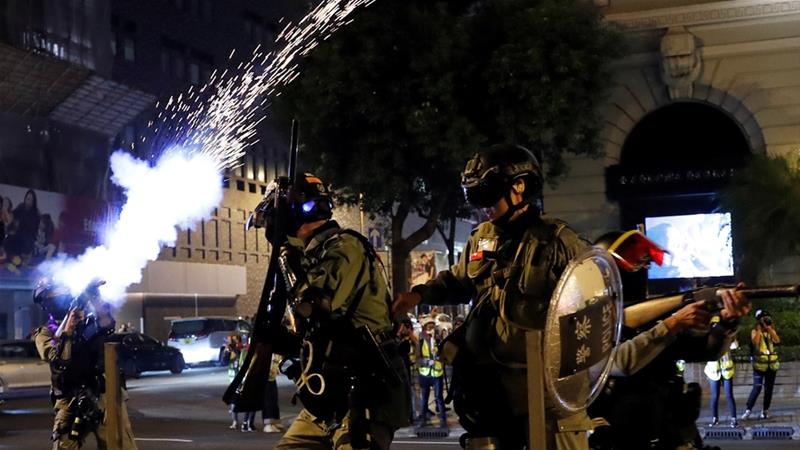Hong Kong’s economy is set to contract in the fourth quarter as the city reels from six months of violent soc
ial unrest, the financial chief said Sunday.
“Based on the situation of these few months, it is inevitable that negative growth will continue,” Financial Secretary Paul Chan said in a blog post. “This means the government will be less flexible in using financial resources under an economic recession.”
The increasingly violent pro-democracy protests that started in June have undermined Hong Kong’s economy, discouraging tourists from visiting and slashing retail sales. Mainland Chinese visitors, who comprise the biggest group of tourists in the city, has plunged by almost half, while retail revenue has dropped by about a quarter during the demonstrations.
Chan said his budget speech to be delivered in February will focus on supporting business, safeguarding employment, reviving the economy and relieving social distress as the city also faces international turbulence such as protectionism and geopolitics. The “core competitiveness” of Hong Kong’s financial market including the banking and securities system, the dollar peg and free flow of capital remain robust and orderly, Chan said.
Visitor Arrivals
Visitor arrivals from China fell a record 46% in October to slightly more than 2.5 million, less than half of the record set in January. The most recent data for retail sales in Hong Kong, once a mecca for shoppers, showed a 24.3% plunge, the biggest ever.
In a separate statement, Hong Kong’s Chief Secretary Matthew Cheung said the city’s institutional strengths such as the rule of law, clean government and a level playing field for businesses have remained strong and intact. The government will broaden its channels of communications with the public, listening and responding more to people’s views and concerns in the coming year, he said.
The city is establishing an independent review committee comprising experts and community leaders to look into causes and full circumstances of the social unrest, looking into deep-seated issues including unaffordable housing and the wealth gap, Cheung said.
The government has launched four rounds of relief measures since August, which will not solve the economic problems but could help businesses and Hong Kong people “stay afloat while we strive to heal our divided community and battered economy,” Cheung said.
“The year 2019 has been a year of unremitting shocks and turbulence to our community and our economy,“ Cheung said. “The past six months have been tough for us, but we will soldier on.”
The government forecasts an annual economic contraction of 1.3% for 2019. The unemployment rate rose to 3.2% in November, the highest level since July 2017. During the protests, more than 2,600 people have been injured, including more than 500 police officers, Cheung said.
SOURCE: Bloomberg



